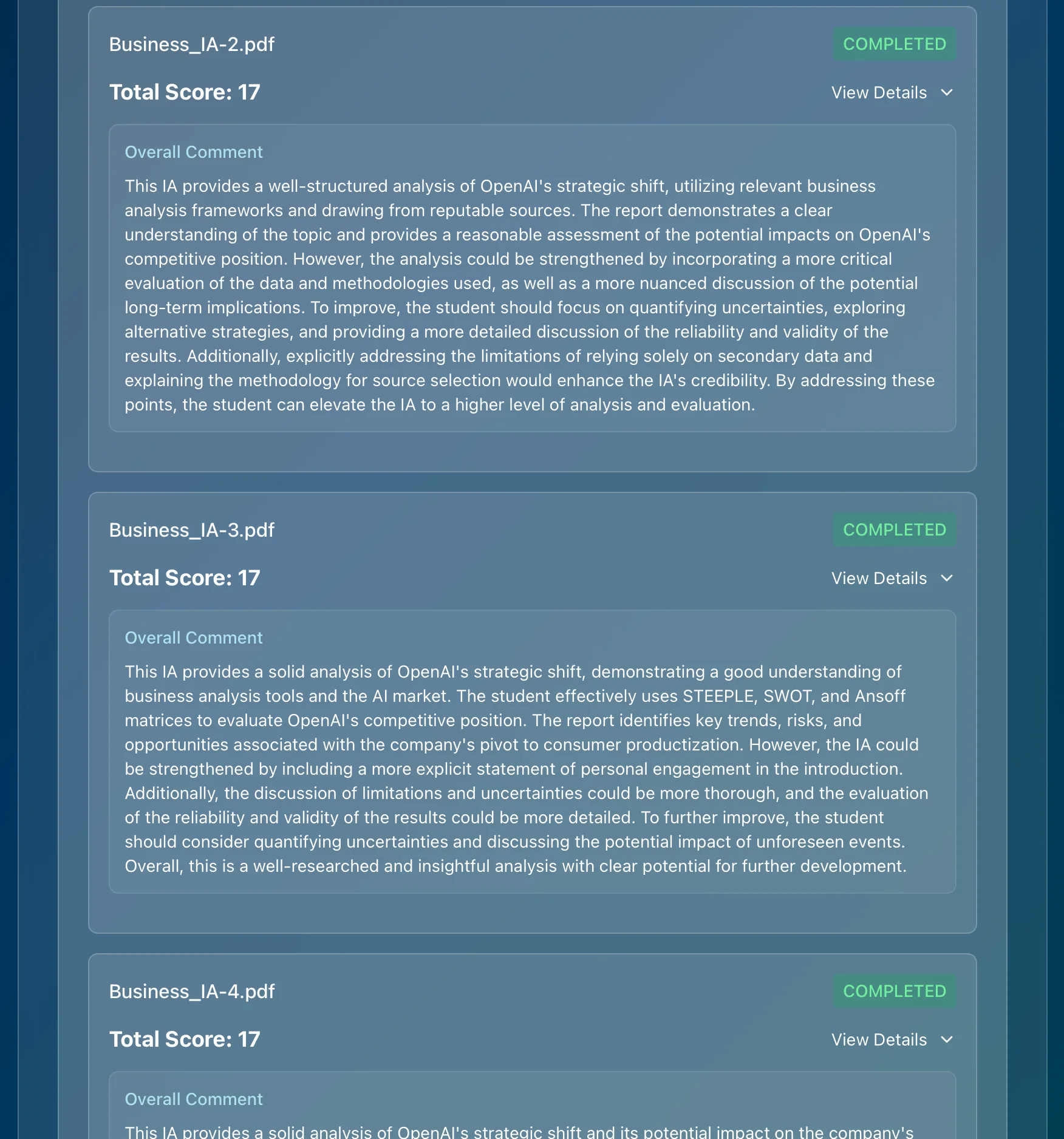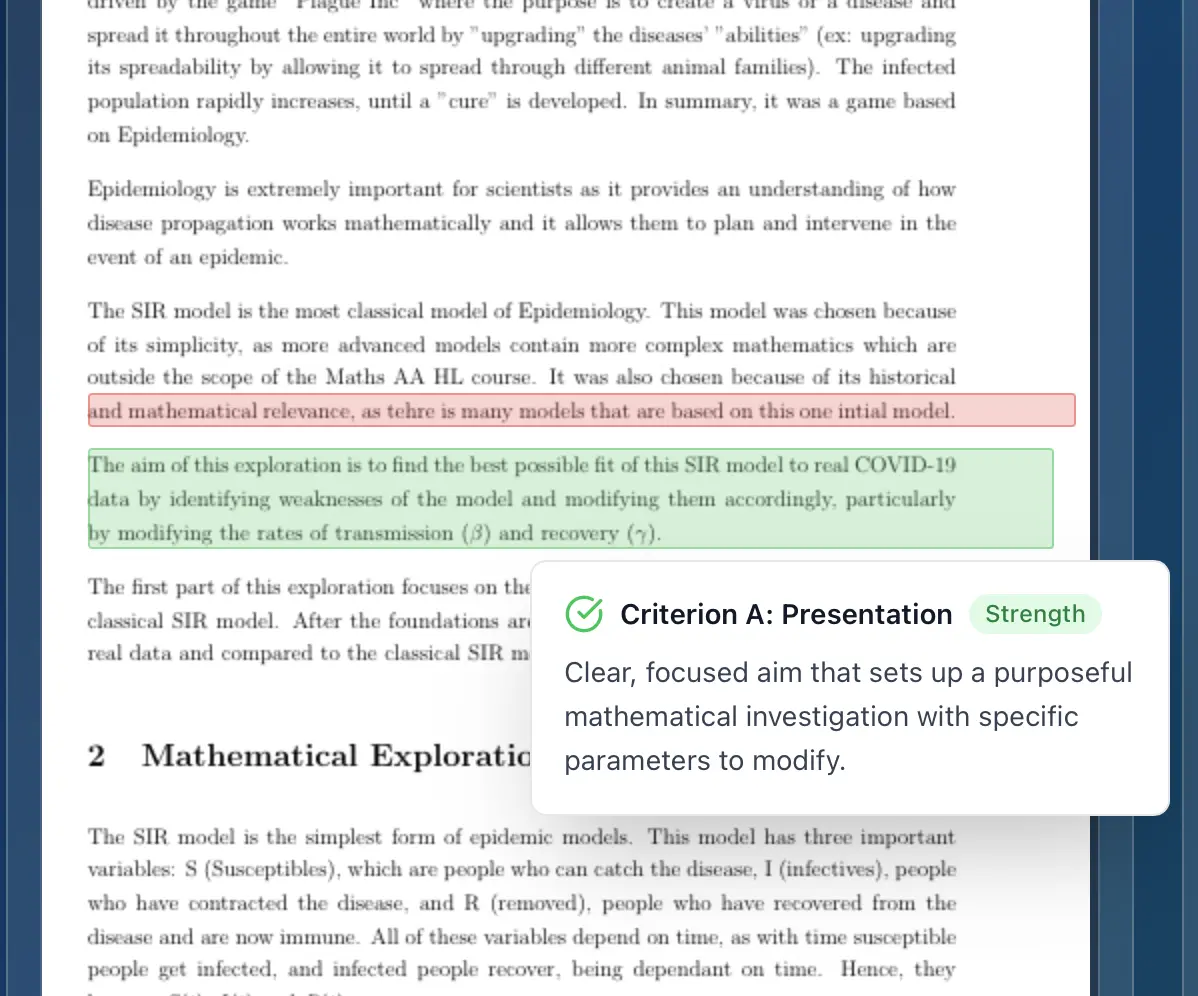Research Skills Every IB Student Should Master
Research skills are the cornerstone of success in the International Baccalaureate (IB) program. From crafting compelling Internal Assessments (IAs) to tackling the Extended Essay and navigating the Theory of Knowledge (TOK) course, effective research is paramount. This guide will equip you with the essential research skills needed to excel in your IB studies, covering everything from formulating research questions to synthesizing information and presenting your findings effectively. We'll explore practical strategies, common pitfalls, and advanced techniques to help you achieve top marks and confidently navigate the research demands of the IB curriculum.
Why Research Skills are Crucial for IB Success
The IB program emphasizes inquiry-based learning, which means you'll be actively involved in researching and exploring topics that interest you. Strong research skills are essential for:
- Successfully completing IAs: In-depth research is required for all Internal Assessments across various subjects.
- Writing a compelling Extended Essay: The Extended Essay is a significant research project that demands rigorous investigation and analysis.
- Engaging in meaningful TOK exploration: TOK requires you to critically examine knowledge claims and explore different perspectives through research.
- Achieving higher grades: Well-researched assignments demonstrate a deeper understanding of the subject matter and impress examiners.
- Developing critical thinking skills: Research encourages you to analyze information, evaluate sources, and form your own conclusions.
Struggling with IB Assessments?
Get instant, detailed feedback on your work with AI that understands IB criteria.

Core Research Skills for IB Students
Let's break down the essential research skills you need to master for IB success:
1. Formulating a Strong Research Question
A well-defined research question is the foundation of any successful research project. It should be:
- Focused: Narrow enough to be manageable within the scope of your assignment.
- Specific: Clearly defined and unambiguous.
- Relevant: Directly related to the subject matter and your area of interest.
- Answerable: Feasible to investigate using available resources.
- Engaging: Intriguing and motivating to explore.
Example:
- Weak Research Question: What are the effects of climate change? (Too broad)
- Strong Research Question: How will rising sea levels impact coastal communities in Bangladesh over the next 50 years? (Focused, specific, relevant, answerable, engaging)
Tips for Formulating a Strong Research Question:
- Start with a general topic: Identify an area of interest within your subject.
- Brainstorm potential questions: Generate a list of questions related to your topic.
- Refine your questions: Evaluate each question based on the criteria above and narrow it down to the most promising one.
- Consult with your teacher: Seek feedback from your teacher to ensure your research question is appropriate and manageable.
2. Identifying and Evaluating Sources
Not all sources are created equal. It's crucial to evaluate the credibility and reliability of your sources before incorporating them into your research. Consider the following factors:
- Author's credentials: Is the author an expert in the field? What are their qualifications and affiliations?
- Publication date: Is the information current and up-to-date?
- Publisher/Source: Is the source reputable and unbiased? Consider the publisher's mission and potential biases.
- Purpose: What is the purpose of the source? Is it to inform, persuade, or entertain?
- Evidence: Is the information supported by evidence and citations?
- Objectivity: Is the source objective and unbiased? Does it present multiple perspectives?
Tools for Evaluating Sources:
- CRAAP Test: Currency, Relevance, Authority, Accuracy, Purpose
- Lateral Reading: Verifying information across multiple sources to identify potential biases or inaccuracies.
Example:
- A blog post on a personal website might be less reliable than a peer-reviewed article published in a reputable academic journal.
3. Effective Note-Taking and Organization
Taking effective notes is essential for capturing key information and organizing your research. Consider these strategies:
- Use a consistent note-taking system: Choose a method that works for you, such as Cornell notes, mind maps, or outlining.
- Summarize key points: Focus on capturing the main ideas and arguments from your sources.
- Paraphrase information: Put information into your own words to avoid plagiarism and ensure understanding.
- Record source information: Include the author, title, publication date, and page numbers for each source.
- Organize your notes: Group your notes by topic or theme to facilitate synthesis and analysis.
Tools for Note-Taking and Organization:
- Digital note-taking apps: Evernote, OneNote, Notion
- Citation management software: Zotero, Mendeley
4. Synthesizing Information and Developing Arguments
Synthesizing information involves combining information from multiple sources to create a coherent and well-supported argument. This requires you to:
- Identify common themes and patterns: Look for connections and relationships between different sources.
- Compare and contrast different perspectives: Analyze how different sources agree or disagree on a particular issue.
- Develop your own thesis statement: Formulate a clear and concise statement that summarizes your main argument.
- Support your thesis with evidence: Use evidence from your sources to support your claims and arguments.
- Acknowledge opposing viewpoints: Address counterarguments and demonstrate a balanced understanding of the topic.
Example:
Instead of simply summarizing each source individually, synthesize the information by identifying common themes and arguments across multiple sources. For example, you might argue that "while Source A emphasizes the economic benefits of globalization, Source B highlights the social costs, and Source C offers a more nuanced perspective that considers both."
5. Proper Citation and Avoiding Plagiarism
Plagiarism is a serious academic offense that can result in failing grades or expulsion. To avoid plagiarism, it's crucial to:
- Cite all sources: Give credit to the original authors for their ideas and words.
- Use a consistent citation style: Follow the guidelines of a specific citation style, such as MLA, APA, or Chicago.
- Paraphrase carefully: Put information into your own words and cite the original source.
- Use quotation marks: Enclose direct quotes in quotation marks and cite the source.
- Use citation management software: These tools can help you organize your sources and generate citations automatically.
Resources for Citation:
- Purdue OWL: A comprehensive online writing lab with detailed information on various citation styles.
- Citation management software: Zotero, Mendeley
Common Challenges/Mistakes in IB Research
IB students often face several challenges when conducting research. Here are some common mistakes and how to avoid them:
- Procrastination: Starting research too late can lead to rushed work and poor results. Solution: Break down the research process into smaller, manageable tasks and set deadlines for each task.
- Overwhelming information: Feeling overwhelmed by the amount of information available. Solution: Focus on your research question and prioritize sources that are most relevant to your topic. Use effective note-taking strategies to organize your information.
- Relying on unreliable sources: Using sources that are not credible or trustworthy. Solution: Evaluate your sources carefully using the CRAAP test or lateral reading techniques.
- Plagiarism: Unintentionally plagiarizing information from sources. Solution: Cite all sources properly, paraphrase carefully, and use quotation marks for direct quotes.
- Lack of focus: Losing focus on the research question and going off on tangents. Solution: Regularly revisit your research question and ensure that all your research and analysis are directly related to it.
Pro Tip: Get AI-Powered Grading
Stop second-guessing your grades. Get instant feedback aligned with official IB rubrics.

Advanced Research Tips and Strategies
For students aiming for top marks, consider these advanced research strategies:
- Conduct primary research: Collect your own data through surveys, interviews, or experiments.
- Analyze data using statistical software: Use tools like SPSS or R to analyze quantitative data.
- Engage with experts in the field: Contact researchers or professionals who are knowledgeable about your topic.
- Explore interdisciplinary connections: Connect your research to other subjects or areas of knowledge.
- Develop a unique and original perspective: Go beyond simply summarizing existing research and offer your own insights and analysis.
Technology and Modern Assessment: The Role of AI
Technology is transforming the way we conduct research and assess student work. AI-powered tools are becoming increasingly valuable for both students and teachers.
For students, AI can assist with tasks such as:
- Finding relevant sources: AI-powered search engines can help you quickly identify relevant articles and research papers.
- Summarizing information: AI tools can automatically summarize lengthy texts, saving you time and effort.
- Checking for plagiarism: AI-powered plagiarism checkers can help you ensure that your work is original.
For teachers, AI can streamline the assessment process and provide more consistent and detailed feedback. This is where Marksy comes in. Marksy is an AI grading assistant specifically designed for the International Baccalaureate (IB). It provides instant, accurate, and detailed feedback on student work based on official IB rubrics.
Here's how Marksy helps:
- Rubric-aligned scoring: Marksy scores student work based on the official IB rubrics, ensuring accuracy and fairness.
- Detailed criterion-by-criterion feedback: Marksy provides specific feedback for each criterion, helping students understand exactly how to improve their work.
- Suggestions for improvement: Marksy offers actionable suggestions for improving student work, based on the IB criteria.
- Time-saving benefits: Marksy saves teachers valuable time by automating the grading process.
By using AI tools like Marksy, teachers can provide more consistent, detailed, and timely feedback, ultimately helping students achieve their full potential in the IB program. These tools use official IB criteria to ensure accuracy and fairness in grading.
Conclusion: Mastering Research for IB Success
Mastering research skills is essential for success in the IB program. By following the strategies and tips outlined in this guide, you can develop the skills you need to formulate strong research questions, evaluate sources effectively, synthesize information, avoid plagiarism, and excel in your IAs, Extended Essay, and TOK course. Remember to embrace technology and explore how AI tools like Marksy can enhance your research and assessment experience.
Next Steps:
- Practice formulating research questions: Try formulating research questions for different topics in your IB subjects.
- Evaluate your sources: Practice evaluating the credibility and reliability of different sources.
- Experiment with different note-taking strategies: Find a note-taking system that works for you.
- Start your research early: Don't wait until the last minute to start your research projects.
- Try Marksy for free: See how Marksy can help you improve your IB scores or streamline your grading workflow. [Link to Marksy Free Trial]